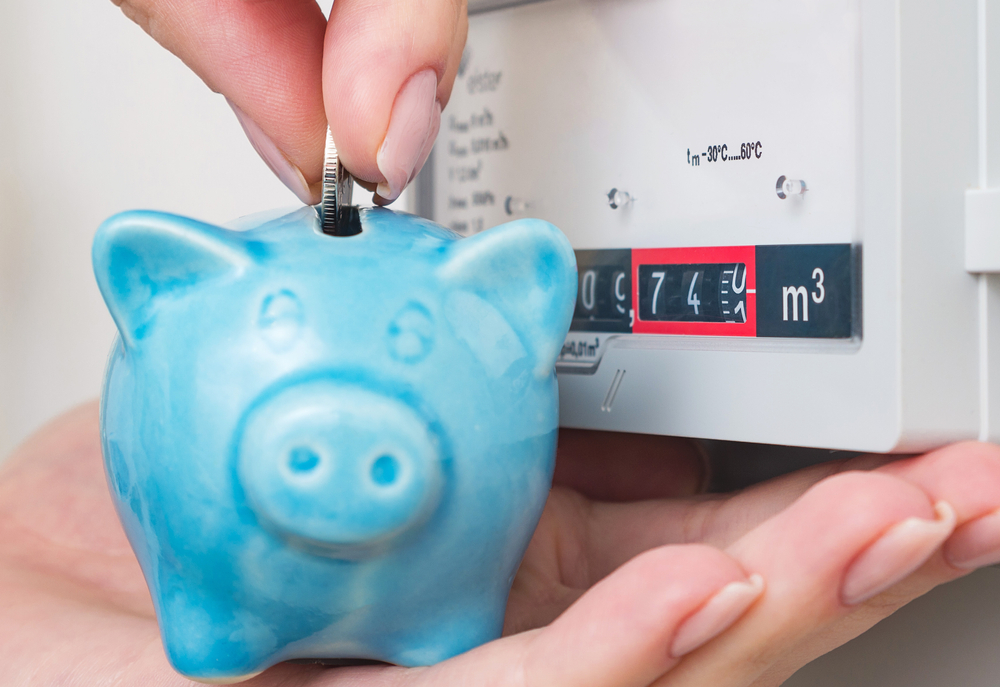KEY POINTS
- If you can’t afford your electricity bills, energy providers are required by law to offer hardship policies and support.
- Disconnecting your home from the power grid is your energy provider’s last resort option if you continue to not pay your electricity bills.
- To be better prepared for electricity bills, customers can monitor and manage their energy usage, consider bill smoothing and shop around for cheaper electricity plans.
Sometimes things just don’t go your way, and you’re left wondering how you’re going to pay that next bill.
That’s a question made all the more difficult when you don’t even know how much that bill is going to be. But that’s how energy bills typically go.
In this Canstar Blue guide, we outline what you can do if you cannot afford to pay your next power bill. We also discuss what happens if you can’t pay your bills and how to resolve it.
On this page:
What should I do if I need help paying my electricity bill?
Under the National Energy Retail Law, all energy providers must offer Aussies struggling with their electricity bills hardship policies and support programs such as payment plans and tailored advice at no extra cost.
If you need help paying your electricity bill, follow the steps listed below:
- Inform your energy retailer about your current financial situation via phone or your provider’s online portal.
- Your provider may offer the following solutions based on your circumstances:
- An extension (this is typically granted if this is your first time struggling with bill shock).
- A hardship policy that differs between providers.
What does a hardship policy involve?
While customers can request to join their energy company’s hardship policy, it’s more likely that the provider will suggest it as an option when a customer is having issues paying their electricity bills.
So, what does a typical hardship policy involve? To find out, we’ve used the example of Origin Energy’s ‘Power On’ program.
According to Origin’s website, the Power On program is there to help customers get back on top of their energy bills by offering them the following solutions:
- Payment plans tailored to your financial circumstances
- Information on how to set up recurring deductions from your Centrelink payments
- Bill redirection to a third party that has agreed to support you in paying off your bills
- Advice and tips on achieving energy efficiency
- Advice on ongoing state concessions and rebates and how to apply for them
- Connect you with a trained financial counselor
- Possibly switching to a different Origin energy plan that is either cheaper or suits your needs better
Customers may be required to provide supporting evidence of their financial hardship to join the program.
Once accepted, customers must also agree to work with Origin to pay off their debt and make all scheduled payments in full and on time.
Assuming the plan has worked successfully, customers will then return to normal billing terms.
What happens if I don’t pay my electricity bill?
If your energy bill isn’t paid by its due date (which can generally be found in the electricity cost section of your energy bill), your energy company will typically send you a reminder via email or post within a few days.
This is when you first start to see the red font and capital letters requesting payment. You may also incur a late payment fee which varies between different retailers.
If you have an energy plan with a pay on time discount, you are likely to lose that conditional discount.
Aside from your energy provider, there may also be consequences to your bank account. Keep in mind that:
- If you have a direct debit set up but not enough money in your account to cover the bill, your bank may still allow the payment to go through, possibly sending you into an unplanned overdraft. This may incur a fee from your bank.
- Conversely, your bank may reject the payment to your energy provider and return the money to your account. This could also incur a fee from your bank.
What happens if you keep missing your electricity bills?
Ultimately, your energy provider has the power to disconnect your property from the energy network, but that’s a last resort no one wants.
Your home will only be disconnected if you refuse to engage with your provider and continuously fail to pay your bills.
Energy providers must comply with strict guidelines set out by industry regulators and cannot disconnect customers who are taking part in a hardship program to pay their debt.
Will my power be cut off if I don’t pay my electricity bill?
Ultimately, your energy provider has the power to disconnect your property from the energy network, but that’s a last resort no one wants. Your home will only be disconnected if you refuse to engage with your provider and continuously fail to pay your bills. Energy providers must comply with strict guidelines set out by industry regulators when it comes to dealing with customers in financial hardship and cannot disconnect customers who are taking part in a hardship program and making an effort to pay their debt.
You might also be interested in:
Does not paying my electricity bill hurt my credit score?
Yes. Credit reporting agencies collect financial information on things like how many loans or credit cards you have, as well as whether you pay your bills on time. Some energy companies conduct credit checks on customers before allowing them to sign up.
Not paying your energy bills on time is likely to negatively impact your credit rating. This runs the risk of significantly impacting your ability to obtain a home loan or a car loan if you consistently fail to pay your electricity bills.

How to be better prepared for electricity bills
While energy bills are notoriously difficult to predict, there are some things you can do to better prepare yourself:
- Download your energy provider’s app: most of the major retailers have useful apps that either monitor your energy usage (if you have a smart meter or self-installed electricity usage monitor) or at least provide bill predictions so you know roughly how much your next bill will be.
- Ask your provider about bill smoothing: most energy providers will happily set you up on a bill smoothing plan, especially if you’re having trouble paying bills on time. ‘Bill smoothing’ means you pay the same agreed amount each month, so you avoid the peaks and troughs of seasonal energy usage and know what you have to pay each time.
- Minimising your energy usage: if you’re able to consciously cut back on how much energy you’re using around the house, your overall electricity bill will go down.
- Make sure you’re not paying too much in the first place: if you’re on a bad energy deal, you’ll already be paying too much. This is especially true if you’re on a standing offer. Shopping around for better deals on electricity brings you one step closer to making electricity bills more affordable
Trying to reduce your household energy bills? See what appliances are chewing through your electricity the most in Canstar Blue’s guide to the most energy hungry appliances.
Compare cheap electricity prices
Here are some of the cheapest published deals from the retailers on our database that include a link to the retailer’s website for further details. These are products from referral partners†. These costs are based on the Ausgrid network in Sydney but prices may vary depending on your circumstances. This comparison assumes general energy usage of 3900kWh/year for a residential customer on a single rate tariff. Please use our comparison tool for a specific comparison in your area. Our database may not cover all deals in your area. As always, check all details of any plan directly with the retailer before making a purchase decision.
Here are some of the cheapest published deals from the retailers on our database that include a link to the retailer’s website for further details. These are products from referral partners†. These costs are based on the Citipower network in Melbourne but prices may vary depending on your circumstances. This comparison assumes general energy usage of 4000kWh/year for a residential customer on a single rate tariff. Please use our comparison tool for a specific comparison in your area. Our database may not cover all deals in your area. As always, check all details of any plan directly with the retailer before making a purchase decision.
Here are some of the cheapest published deals from the retailers on our database that include a link to the retailer’s website for further details. These are products from referral partners†. These costs are based on the Energex network in Brisbane but prices may vary depending on your circumstances. This comparison assumes general energy usage of 4600kWh/year for a residential customer on a single rate tariff. Please use our comparison tool for a specific comparison in your area. Our database may not cover all deals in your area. As always, check all details of any plan directly with the retailer before making a purchase decision.
Here are some of the cheapest published deals from the retailers on our database that include a link to the retailer’s website for further details. These are products from referral partners†. These costs are based on the SA Power network in Adelaide but prices may vary depending on your circumstances. This comparison assumes general energy usage of 4000kWh/year for a residential customer on a single rate tariff. Please use our comparison tool for a specific comparison in your area. Our database may not cover all deals in your area. As always, check all details of any plan directly with the retailer before making a purchase decision.
Image credits: Yevhen Prozhyrko/Shutterstock.com, Milleflore Images/Shutterstock.com



Share this article